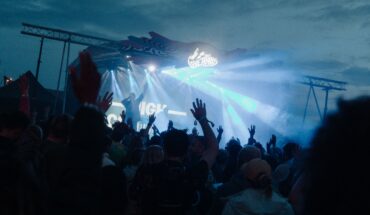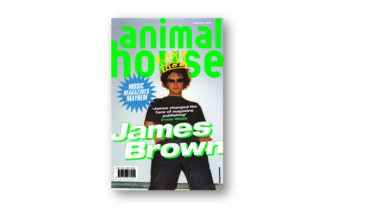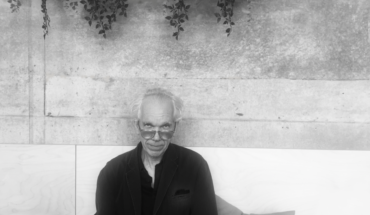Alec Byrne is a former photographer, who from the age of 17 worked in the music industry shooting a range of the most talked about emerging artists. From 1965 – 1975 he photographed musicians such as, The Rolling Stones, Rod Stewart, Chuck Berry and more.
On December 8, an exhibition at Proud Central, London was held for Byrne, advertising a collaboration of some of his unseen work from the decade he worked as a photographer. The exhibition sponsors the collectors book he published in November, London Rock: The Unseen Archive by Alec Byrne. His book includes a range of pictures and essays, detailing some of the many faces he worked alongside in the music industry.
Alec began his photography career in 1965, on Fleet Street London. The same place the exhibition was held. Laviea spoke to Alec about what it was like being such a young photographer during this time period and his experience with the artists he shot…
Where did you start out as a photographer?
I started out at Fleet Street, at an agency called Keystone Press. I was just a dispatcher there, I wasn’t a photographer, but that’s where I discovered and got bitten by the photography bug, and it all started from there just as a young kid and it’s fun to see the whole thing back to home-base.
What was it like working for NME?
The access I got from working with NME opened so many doors. I set up my own studio and got known very quickly. I continued to work for NME but as an independent, not on a retainer. During that period, I was always the young kid, everyone there was much older than me. I never had a lesson in photography in my life, I just went with it.
What was it like to work in London during this time period?
Back in that period, London was the epicentre of the world for rock music, partly followed by San Francisco, but London was the place and if the acts didn’t originate here, they would come here to visit, promote, do concerts. So not only do you have The Who, The Kinks, The Stones- (most of the Great British icons,) but then you had the Beach Boys, they would come in because I was known and they were available for me to shoot.
How did it make you feel to know you were shooting so many idols? Was it at all dreamlike?
When I moved away from the music industry everything was put in boxes. It wasn’t until years later did I realise how significant and what an impact that decade had. It didn’t hit me during the time period I was shooting them, it was this day, five years ago the pictures came out of storage and there was a show put on in LA for one night and over 1,000 people showed up. I was stunned because you spoke with people who were at some of the concerts you shot and they got so excited. We all have a soundtrack to our lives, whether its Justin Bieber or The Doors.
What was your timetable like? Were you very busy?
I was 16 when I started to work for NME and set up my studio at 17- where I was shooting six days a week. I look back on work diaries, and I’m like how the hell did I do all that stuff? I wasn’t on speed; I wasn’t on coke. How did I do so much of this stuff, The Who in Southampton on Tuesday, Kinks in the studio on Friday, Ran Morrison at the rainbow, it just went on and on and on.
Was it an easy process for you to gain access to photograph artists?
You would have some good rapport, but unless it was with the management or agent then it made it difficult to get in contact with the artist. I was a big fan of Led Zeppelin, but their manager was extremely difficult to work with. As much as I loved their music, I had very limited access, I shot them at a few gigs and a few parties, but never got them into my studio or never spent any time on the road with them.
Talk me through what happened during the three dangerous events some of your work survived and some suffered.
In December, 1970, I was out Christmas shopping and I called into my studio in London from a payphone, (this was before cell phones were a thing,) called into my sectary, no answer, called back again and a fireman answered the phone and said we’ve lost the top of the building, thousands of negatives were destroyed. I walked away from the music business in 75, and boxed everything up and shipped them over to California, during the crossing there was a storm damage, water got in, once again hundreds of negatives got destroyed. I later moved into my offices on Hollywood Boulevard and in 1994, we had the Northwich earthquake. After those three things, the fact that we had so much material to publish this book is crazy. However, there are hundreds of bands that I didn’t manage to get into the book such as The Kinks, Status Quo, Loo Loo, Dusty Springfield etc.
Alongside shooting gigs and concerts, were you able to shoot Festivals too?
I would cover 60% of any of the major gigs, things like the Isle of Wight, Weeley Festival, The Flower Children Festival. Anything major going on, the Royal Albert Hall. It was less than a month ago did I see a picture I took of David Hemmings and Vanessa Redgrave at The Flower Children Festival where they are sitting down, relaxing. At the time, I took this as an amazing experience, seeing two actors not being hassled by paparazzi and being able to photograph this was amazing. It just sums up how easy going it was during that period. I photographed a lot, Elton John at System Palace The Stones at Hyde Park.
If you could have the opportunity to shoot 3 artists again from that decade, who would be your top 3?
When Hendrix arrived in London he was on fire, everyone wanted to go see Hendrix. All three of The Beatles would show up at his concerts. Hendrix, definitely. The Doors were incredible, and Bowie. I got on well with Bowie, I managed to do a shoot with him at a park in Beckenham where he used to live and we had a lovely shoot, no entourage, no publicist, management, you know all the nonsense that goes on nowadays. It was great to spend an afternoon with him. He then later used the photo I took for his tour guide for Space Oddity.
See Alec’s work in London Rock: The Unseen Archive.





